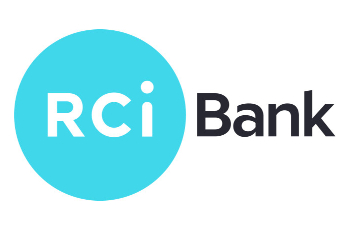This comparison simply includes all savings accounts.
Notice Savings Accounts
New customers use promo code CHIPWELCOME and deposit at least £1 within 14 days to receive a 1.10% AER boost to standard 3.50% AER rate for 3 months
Interest paid on account balances over £20,000. No interest paid if balance is below. Winner of Platinum Feefo Trusted Service Award in 2024
Guide to Notice Savings Accounts
Understanding Notice Savings Accounts
A Notice Savings Account is a type of savings account offered by banks and financial institutions in the UK. It provides customers with the opportunity to earn interest on their savings while requiring them to give advance notice before making withdrawals. This type of account is ideal for individuals who want to earn interest on their savings but may not need immediate access to their funds.
What are Notice Savings Accounts?
Notice Savings Accounts, also known as Notice Accounts or Notice Deposit Accounts, are a popular choice for savers who want to earn interest on their funds without committing to a fixed-term deposit. Unlike regular savings accounts, where you can typically withdraw money at any time, Notice Savings Accounts require you to give notice to the bank before making a withdrawal. The notice period can vary, usually ranging from 30 days to several months, depending on the bank and the specific account.
The notice period serves as a mutual benefit for both the account holder and the bank. It allows the bank to plan and manage their finances more effectively since they know in advance when customers will withdraw funds. On the other hand, account holders can benefit from potentially higher interest rates compared to instant-access savings accounts.
How Do Notice Savings Accounts Work?
- Account Opening: To open a Notice Savings Account, you need to choose a bank or financial institution that offers such accounts. Compare different banks to find the one that offers the most competitive interest rates and notice periods that align with your needs.
- Deposits: Once your account is open, you can deposit money into the account whenever you like. There might be a minimum deposit requirement to open the account, so be sure to check the specific terms and conditions.
- Notice Period: Notice Savings Accounts require you to give advance notice before withdrawing funds. For example, if your account has a 60-day notice period and you want to make a withdrawal, you need to notify the bank 60 days in advance.
- Earning Interest: Your savings in the Notice Savings Account will earn interest during the time they remain in the account. The interest rates for these accounts can be fixed or variable, depending on the type of account you choose.
- Withdrawals: Once the notice period has passed, you are free to make withdrawals from your account. The bank will process your request, and you can access your funds accordingly.
Advantages of Notice Savings Accounts
Notice Savings Accounts offer several benefits to savers in the UK:
- Higher Interest Rates: Generally, Notice Savings Accounts offer higher interest rates compared to instant-access savings accounts. The notice period provides banks with more certainty about their cash flow, allowing them to offer more attractive interest rates to customers.
- Forced Savings: The notice period acts as a deterrent against impulsive spending. It encourages disciplined savings by requiring customers to plan their withdrawals in advance.
- Flexibility: Despite the notice requirement, Notice Savings Accounts still offer more flexibility than fixed-term deposits. You can choose notice periods that align with your financial needs, ranging from short to long terms.
- No Penalty for Early Withdrawal: While early withdrawals are not permitted during the notice period, there is typically no penalty for doing so. You can simply wait until the notice period ends to access your funds.
How to Choose the Right Notice Savings Account
When considering a Notice Savings Account, it's essential to find one that aligns with your financial goals and offers the best value for your money.
Assessing Your Savings Goals and Timeframe
Before opening a Notice Savings Account, take some time to assess your savings goals and the timeframe for which you can comfortably lock away your funds.
- What are you saving for? Whether it's a specific financial goal like a down payment on a house, a vacation, or an emergency fund, understanding your purpose for saving will help you determine how much to save and for how long.
- How soon will you need the money? Consider the potential need for quick access to your funds. If you anticipate requiring funds in the near future, a shorter notice period may be more suitable.
- What is your risk tolerance? Notice Savings Accounts offer more security than investment options like stocks or mutual funds. If you prefer a lower-risk savings option, a Notice Savings Account can be a wise choice.
Interest Rates and APYs Explained
Interest rates play a crucial role in determining the overall growth of your savings in a Notice Savings Account. As you compare different accounts, pay attention to the following:
- Annual Percentage Yield (APY): The APY represents the total interest earned on your savings in one year, taking into account compounding. A higher APY means more significant growth for your savings.
- Fixed vs. Variable Interest Rates: Some Notice Savings Accounts offer fixed interest rates that remain constant throughout the notice period, while others have variable rates that may change over time. Analyse the pros and cons of both options based on your financial preferences.
- Promotional Rates: Some banks may offer promotional interest rates for a limited time. Be aware of when the promotional period ends and what the interest rate will be afterward.
Comparing Notice Periods
Notice Savings Accounts come with varying notice periods, typically ranging from 30 days to several months. Consider the following when comparing notice periods:
- Flexibility: A shorter notice period allows for more flexibility in accessing your funds. However, it may come with a trade-off of a slightly lower interest rate.
- Interest Rate Variations: Longer notice periods often come with higher interest rates. If you can commit to a longer notice period, you may benefit from better interest earnings.
- Changing Notice Periods: Some banks offer the option to change the notice period later on. This flexibility can be advantageous if your financial situation changes.
Understanding Minimum Deposit Requirements
Pay attention to the minimum deposit required to open a Notice Savings Account. Some accounts may have no minimum deposit requirement, making them accessible to a broader range of savers. Others may require a substantial initial deposit, which could impact your decision, especially if you're just starting to build your savings.
Fees and Charges to Watch Out For
When considering a Notice Savings Account, be aware of any potential fees or charges that might apply. Common fees to watch out for include:
- Account Maintenance Fees: Some banks may charge a monthly or annual fee for maintaining the account.
- Withdrawal Fees: While early withdrawals during the notice period are generally allowed without penalty, some banks may charge a fee for withdrawing funds before the notice period ends.
- Transfer Fees: If you plan to transfer funds from another account to your Notice Savings Account, check if there are any associated fees.
Opening a Notice Savings Account
Opening a Notice Savings Account is a straightforward process that requires some essential steps and documentation.
Eligibility Criteria
Before applying for a Notice Savings Account, ensure you meet the eligibility requirements set by the bank. While specific criteria may vary from one bank to another, common eligibility requirements include:
- Age: Most banks require applicants to be at least 18 years old to open a Notice Savings Account. Some banks may offer junior accounts for younger savers.
- Residency Status: You usually need to be a UK resident to open a Notice Savings Account, although some banks may offer international accounts for non-residents.
- Identification: You'll need to provide valid identification documents, such as a passport, driver's license, or national ID card, to verify your identity.
Required Documents
Gather the necessary documents before heading to the bank to open your account. The typical documents required include:
- Proof of Identity: A valid form of photo identification, as mentioned above, to verify your identity.
- Proof of Address: You'll need to provide a recent utility bill, bank statement, or government-issued document that displays your name and current address.
- National Insurance Number: Some banks may require your National Insurance number for tax reporting purposes.
Application Process Step-by-Step
- Research Banks: Start by researching different banks and financial institutions offering Notice Savings Accounts. Compare interest rates, notice periods, and account features to find the best fit for your needs.
- Visit the Bank: Once you've chosen a bank, visit your chosen branch in person, or check their website to see if they offer an online application process.
- Meet with a Representative: If visiting in person, schedule an appointment or wait for the next available representative to assist you with the account opening process.
- Fill Out the Application Form: Provide the necessary information and fill out the application form accurately. Double-check all details to avoid errors.
- Submit Required Documents: Present the required documents (proof of identity, proof of address, and any other requested documents) to the bank representative for verification.
- Minimum Deposit: If there's a minimum deposit requirement, make the deposit during the account opening process.
- Review Terms and Conditions: Carefully review the terms and conditions of the account before signing any documents. Pay attention to interest rates, fees, and the notice period.
- Sign the Agreement: Sign the account opening agreement to finalise the process.
Tips for a Smooth Account Opening
- Prepare Ahead of Time: Gather all necessary documents and information before visiting the bank to avoid any delays in the account opening process.
- Ask Questions: If you have any doubts or questions during the application process, don't hesitate to ask the bank representative for clarification.
- Keep Copies of Documents: Make copies of all the documents you provide to the bank for your records.
- Online Applications: If your chosen bank offers online applications, ensure you have a secure internet connection and follow the instructions carefully.
Managing Your Notice Savings Account
Once your Notice Savings Account is open, it's essential to manage it effectively to make the most of your savings and achieve your financial goals.
Transferring Funds Into the Account
To start growing your savings, you'll need to transfer funds into your Notice Savings Account. Here's how you can do it:
- Direct Deposits: Set up direct deposits from your salary or other income sources into your Notice Savings Account. This automated process ensures a regular contribution to your savings without any effort on your part.
- Manual Transfers: If direct deposits aren't feasible, make a conscious effort to transfer a portion of your income into the account regularly. Treat it as a commitment to yourself and your financial future.
- Lump Sum Deposits: If you come into unexpected funds, such as a bonus or gift, consider depositing a lump sum into your account to boost your savings.
Monitoring Interest and Growth
Keep a close eye on the interest earned and the overall growth of your savings. Regularly reviewing your account statements will help you stay informed about the progress of your savings journey.
- Interest Crediting: Notice Savings Accounts usually credit interest at specified intervals, such as monthly or annually. Check when and how the interest is credited to ensure it aligns with your financial plans.
- Interest Rates: Stay informed about any changes in interest rates. Banks may adjust rates periodically based on market conditions, so it's crucial to be aware of how it may impact your savings.
- Compound Interest: Notice Savings Accounts often offer compound interest, where interest is calculated on both the initial deposit and any interest earned. This compounding effect can significantly boost your savings over time.
Withdrawing Funds with Notice
When you need to make a withdrawal from your Notice Savings Account, you must adhere to the notice period agreed upon during the account opening.
- Providing Notice: To initiate a withdrawal, notify the bank of your intent to withdraw funds. The notice period may vary depending on the account, so ensure you comply with the specific timeframe.
- Waiting Period: After providing notice, wait for the notice period to elapse before the bank processes your withdrawal request. Plan ahead to ensure you have access to funds when needed.
- Partial Withdrawals: Some accounts may allow partial withdrawals, meaning you can withdraw only a portion of your savings while leaving the rest to continue earning interest.
Reinvesting or Closing the Account
Upon withdrawal, you have options for managing your funds. Consider the following:
- Reinvestment: If you no longer need immediate access to your funds, consider reinvesting the withdrawn amount into your Notice Savings Account or another savings option.
- Account Closure: If you no longer wish to keep the account open, you can close it after the withdrawal. Before closing, check for any potential penalties or charges associated with account closure.
Strategies to Maximise Savings
To make the most of your Notice Savings Account, implement these strategies:
- Automate Savings: Set up automatic transfers to your Notice Savings Account, making savings a priority without effort.
- Ladder Notice Periods: If you have significant savings, consider opening multiple Notice Savings Accounts with different notice periods to maximise flexibility and interest rates.
- Review and Adjust: Periodically review your savings goals and financial situation. If necessary, adjust your notice period or switch to a different savings option that better aligns with your needs.
Tips for Getting the Most out of Notice Savings Accounts
Notice Savings Accounts offer a valuable opportunity to grow your savings, and with the right approach, you can optimise their benefits. Consider the following tips to make the most out of your Notice Savings Account:
Staying Informed About Interest Rate Changes
Interest rates can fluctuate over time based on economic conditions and central bank policies. To ensure you're getting the best possible returns, stay informed about any changes in interest rates. Keep an eye on financial news, follow updates from your bank, and consider setting up rate change alerts to stay ahead.
Using the Notice Period to Your Advantage
The notice period can act as a strategic tool to enhance your savings strategy. Employ the notice period to avoid impulsive spending and allow your savings to grow undisturbed. Additionally, use the notice period as an opportunity to assess your financial needs and make informed decisions about when to withdraw funds.
Creating a Savings Plan
Having a well-defined savings plan is essential for reaching your financial goals. Set specific and achievable targets for your Notice Savings Account. Determine how much you want to save within a certain timeframe and create a budget that allows you to make regular contributions to your account.
Regularly Reviewing Your Savings Strategy
Financial circumstances and goals can change over time. Regularly review your savings strategy to ensure it still aligns with your current needs. If your situation changes, adjust your savings plan or explore other savings options to maximise your returns.
Combining Notice Savings with Other Accounts
Notice Savings Accounts can be one part of a diversified savings strategy. Consider combining your Notice Savings Account with other savings instruments such as regular savings accounts, cash ISAs (Individual Savings Accounts), or even long-term investments. Diversifying your savings can provide greater financial security and potential for higher returns.
Example of Diversified Savings Strategy:
- Notice Savings Account: For short to medium-term goals with a notice period, such as an emergency fund or a vacation fund.
- Cash ISA: For tax-free savings and additional interest benefits over the long term.
- Investment Portfolio: For long-term financial growth with a higher level of risk tolerance.
By incorporating these tips into your financial approach, you can harness the full potential of your Notice Savings Account and work towards achieving your aspirations.
Frequently Asked Questions (FAQs)
1. Are Notice Savings Accounts Safe?
Yes, Notice Savings Accounts are generally considered safe. They are offered by reputable banks and financial institutions that are regulated by financial authorities in the UK. Your savings in a Notice Savings Account are protected up to £85,000 by the Financial Services Compensation Scheme (FSCS), providing additional peace of mind.
2. Can I Have Multiple Notice Savings Accounts?
Yes, you can have multiple Notice Savings Accounts with different banks or even the same bank. Having multiple accounts allows you to diversify your savings and take advantage of various interest rates and notice periods.
Example:
- Bank A: Notice Savings Account with a 90-day notice period for your emergency fund.
- Bank B: Notice Savings Account with a 30-day notice period for your vacation fund.
3. Is the Interest Taxable?
Yes, the interest earned in a Notice Savings Account is subject to taxation. The amount of tax you pay on the interest will depend on your tax band (basic rate, higher rate, or additional rate) and any applicable tax allowances.
4. What Happens If I Need to Withdraw Without Notice?
If you need to withdraw funds from your Notice Savings Account without providing the required notice, the bank will likely decline your request. The notice period is a contractual agreement between you and the bank, and adhering to it is essential to access your funds.
5. Can I Change the Notice Period?
Some banks may offer the option to change the notice period on your Notice Savings Account. However, this might be subject to specific terms and conditions. If you think you may need quicker access to your savings, contact your bank to inquire about changing the notice period.
6. What is a Notice Savings Account?
A Notice Savings Account is a type of savings account offered by banks in the UK. It allows you to earn interest on your savings while requiring you to give advance notice (e.g., 30 days) before making withdrawals. The notice period acts as a mutual benefit for both the account holder and the bank, offering higher interest rates compared to instant-access savings accounts.
7. How does the Notice Period Work?
The notice period in a Notice Savings Account refers to the amount of time you need to provide notice before making a withdrawal. For example, if your account has a 60-day notice period and you want to withdraw funds, you must notify the bank 60 days in advance. After the notice period elapses, you can access your funds without penalties.









